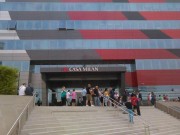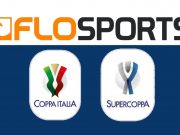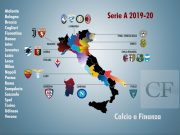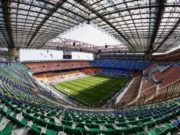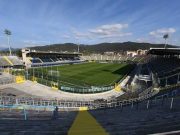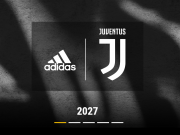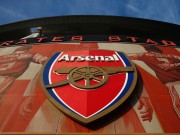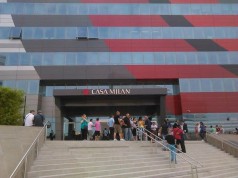Security, meals, maintenance, miscellaneous services and targeted communication activities cost Lazio €7.13 million during 2015/16. The club, which is owned by Claudio Lotito, decided to entrust these services to other companies which the president is a shareholder in: this figure of over €7 million represents 41.2% of the total cost of the club’s external services, which came to €17.3 million as revealed in their accounts ending 30th June 2016. These figures emerge from Lazio’s consolidated financial statement, which closed last season with a loss of more than €12 million.
The club’s unsophisticated management structure engaged businesses in almost every sector, and their inclination towards running things in-house even extended to advertising: 30% of the money spent to promote the group, €4.61 million in total, went into the takings of the other club in which Lotito is a member – Salernitana. The value of this deal was €1.45 million, on top of which is another €0.37 million of future debts still to be paid. The Campanian club received exactly the same sum for exactly the same reason in the previous year: clearly the Lazio ownership believed they were right to continue to promote their brand in Salerno.
What other services were provided by businesses that depend on Lotito’s financial backing and were paid for by Lazio? The answer is a little bit of everything that is fundamental for a football team to be run well. €630,000 in security costs were paid to Roma Union Security, with a future debut of €0.32 mln; maintaining Formello cost €1.48 mln, paid to Gasoltermica Laurentina who also earned an advance payment of €120,000 and are indebted to the sum of €0.07 mln. Omnia Service, meanwhile, earned €1.05 mln, with €0.73 mln still owed to them, for catering services for the club’s employees.
Then there are the service companies, like Linda who, for €0.54 mln, deal with “information systems, organisational processes, and logistics relating to business and commerce.” For €390,000, Snam Lazio Sud makes the vague guarantee of “administrative assistance services” and Bona Dea, who were paid €0.2 mln with a further €0.03 mln indebted to them, deal with the Biancocelesti’s staff administration.
Lazio, who are on the stock market, are of course entitled to choose businesses that the management has links to as official partners, and it isn’t even the first time that there have been references to Lotito’s other businesses in the club’s accounts. In their financial statement, the club underlines that “these transactions have been carried out in compliance with substantive and procedural fairness, and under normal market conditions.” Lotito, in short, ensured that Lazio’s affairs were being looked after by businesses that were well-known to him in order that everything was kept under control. In exchange, the owner imposed strict austerity on his administrators: unlike many other Serie A sides, such as Roma and Juventus, the members of the club’s board of directors and advisory board are unpaid. Including the president.



